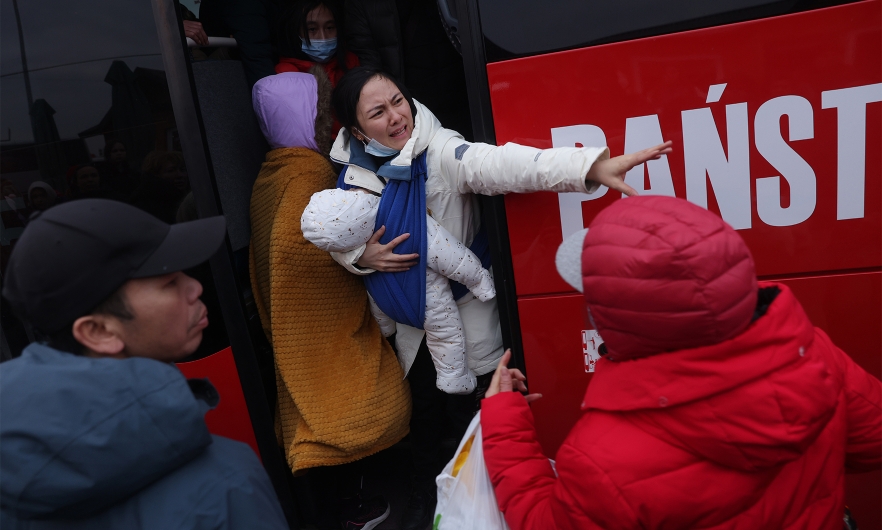The Bloomberg School stands in solidarity with the people of Ukraine as Russia’s brutal invasion is now evolving into a full-scale humanitarian crisis. Our hearts are with all who are suffering on the ground and with members of our School community who have loved ones and ties in the region.
The conflict will not only have serious geopolitical consequences—it will have lasting effects on the public’s health. A million refugees have fled the country; hospitals have been damaged and health care workers killed. Even as attacks on urban centers have sent untold numbers of people to emergency rooms, the invasion has profoundly disrupted care and medications for those with cancer, diabetes, HIV, TB, and other serious conditions.
Also top of mind for us is the threat to vital public health services in Ukraine, where the Bloomberg School has worked with local partners for years on progressive, evidence-based programs in areas such as drug policy reform and HIV services. In contrast, the Bloomberg School once helped run the only confidential HIV testing clinic for men in Moscow, but threats of violence against clients and staff forced its closure—and government interference would eventually end that work altogether. And we remember all too well that when Russia illegally annexed Crimea, it shut down methadone services on the first day of the occupation.
And, sadly, the invasion will likely exacerbate the spread of COVID-19 in Ukraine and neighboring countries.
The challenges ahead are substantial. An effective response will require coordination, expertise, and collaborative policymaking from many governments and public health systems. The U.S. and other nations must continue their strong support of Ukraine. All of us must rally behind Ukraine’s brave people.
Even as Ukraine is on our minds, we must remember the humanitarian emergencies happening right now in Yemen, Afghanistan, Ethiopia, Syria, and elsewhere. They too urgently need our attention, our donations, and our support.
While these conflicts are hard to watch, we must not despair. Our public health colleagues on the ground can make a difference even during the turbulence of war. And we at home will support their efforts and continue to call for peace and the preservation of humanity at this critical time.
Sincerely,
Ellen J. MacKenzie, PhD ’79, ScM ’75
Dean
Bloomberg Distinguished Professor
Chris Beyrer, MD, MPH ’91
Desmond M. Tutu Professor of Public Health and Human Rights
Director, Center for Public Health and Human Rights
Paul Spiegel, MD, MPH ’96
Professor of the Practice
Director, Center for Humanitarian Health
Related:

